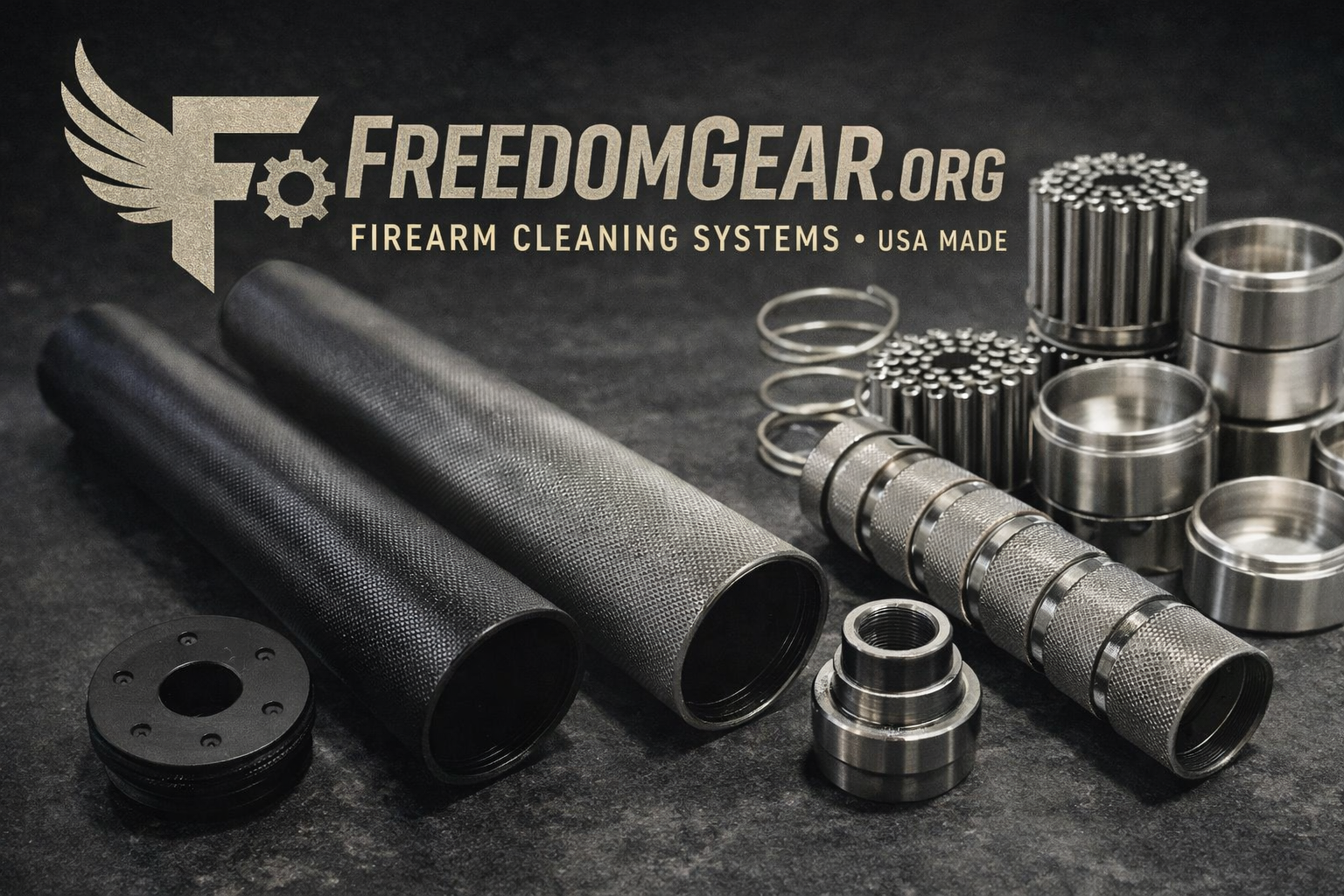Gun owners are becoming more interested in solvent traps due to their practical application in maintaining firearms. Unfortunately, their legality can be unclear and depend upon both federal and state regulations, creating an additional headache for gun owners. This article will offer a comprehensive explanation of solvent traps’ legal status and offer guidance to ensure lawful usage.
What Are Solvent Traps (Cylinder Devices)?
Solvent traps, also called cylinder devices, are intended to attach to firearms’ muzzles to capture any cleaning solvents dripping off when cleaning is performed on them. This keeps the area tidy while protecting against harmful chemicals entering the environment. Usually constructed from metal or plastic materials and featuring intricate designs, while others offer simpler options, solvent traps are an invaluable way of keeping weapons and ammunition clean and in check.
Solvent traps are useful tools for gun maintenance, but their look and function could lead to legal complications. A suppressor (commonly called “silencers”) reduces sound produced when weapons are fired; solvent traps have similar features that have caused legal disputes over time.
Legal Overview
Solvent traps’ legality depends on their intended use and whether or not they have been altered in any way. According to federal firearm laws such as the National Firearms Act, any device that muffles or reduces firearm noise must be registered with ATF (Alcohol, Tobacco, Firearms, and Explosives). Solvent traps may appear like noise suppressors, but their main function is actually to trap solvents during cleaning processes.
Legal Complications Arise
however, when people attempt to modify solvent traps to function as suppressors. Under federal law, altering solvent traps so they function as suppressors is illegal without first registering them with ATF and receiving permission for the modification from that agency. ATF has taken legal action against individuals intending to modify solvent traps without necessary permits into suppressors without getting approval – unregistered suppressors could lead to jail time and fines being assessed against their owners.
State Regulations
State regulations play an integral role in determining whether solvent traps are legal. Solvent traps could be subject to stricter state regulations for firearm suppressors. In states like California and New York, possessing firearm suppressors is illegal in most cases; owning one may even present legal complications should law enforcement believe that it can be converted to suppressors.
Before purchasing or using a solvent trap, gun owners must be fully informed about both state and federal laws, both locally as well as nationally. Ignorance cannot be an acceptable excuse.
Best Practices in Legal Compliance
Gun owners should follow best practices for safe gun use to remain within legal requirements. Here are some key steps that they should follow:
Before purchasing a solvent-trap
it is important to understand both federal and state regulations regarding this device. If in doubt about legality in your location, consult a firearms law expert or local law enforcement for advice.
Avoid Modifications.
Do not convert solvent traps to suppressors without prior permission and registration from the ATF. Even minor modifications could turn legal suppressors into illegal solvent traps with serious legal ramifications.
- Keep documentation and clarify intent: Keeping detailed records to demonstrate that the solvent trap was only intended to clean firearms is key to providing evidence that supports your intentions if any questions from law enforcement arise about its purpose or use. You might need receipts, manufacturer’s statements or correspondence with legal authorities as proof. Keeping these documents could prove invaluable if challenged by authorities and help clarify your intentions more fully.
- Stay Up-to-Date on any Law Changes: As gun laws can change at any time, it is imperative that you remain informed on any updates and amendments. Join firearm owners associations, subscribe to legal newsletters or set alerts about changes in local and national legislation concerning solvent traps and similar devices – this way you can remain compliant by being proactive.
- Consult Professionals: If in doubt, consult a lawyer specializing in firearms laws to obtain tailored advice that ensures you do not inadvertently break any laws.
Consequences for Noncompliance with Compliance Requirements (Comply with all Compliance regulations or face consequences for non-compliance.)
Failing to comply with legal requirements regarding solvent traps can have devastating repercussions. You could face criminal charges for possessing unregistered suppression devices – even if used originally as solvent-traps – even if originally used for solvent-trapping. A conviction will incur significant fines and imprisonment penalties, as well as loss of voting, owning firearms, or holding certain positions.
Solvent Traps Can Be Invaluable Tools For Maintaining Firearms.
However, their similarities with suppressors create an atmosphere of complexity for gun owners who wish to use these devices legally and responsibly. To use these devices legally and without modifications or paperwork issues, gun owners should become familiar with all relevant regulations before purchasing one and keep meticulous documentation. By following best practices and staying abreast of ever-evolving laws, solvent trap management can be managed both legally and responsibly.
Solvent traps can be an excellent way to maintain firearms. But their potential misuse as suppressors cannot be ignored. Gun owners who follow legal guidelines and take proactive measures to ensure compliance can continue to enjoy these devices’ advantages; understanding their legality and safety may be particularly important for newcomers or novice owners.
